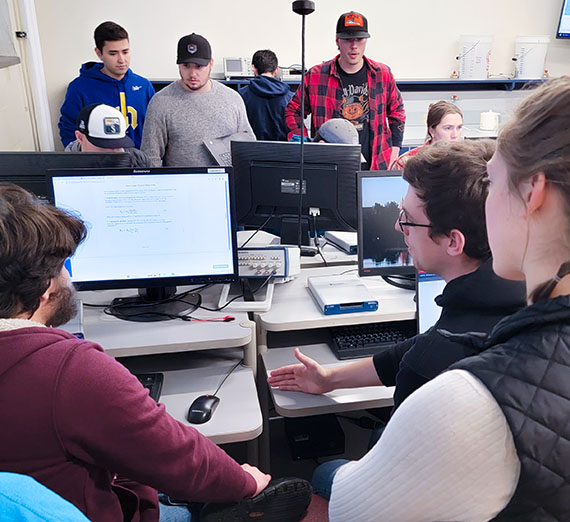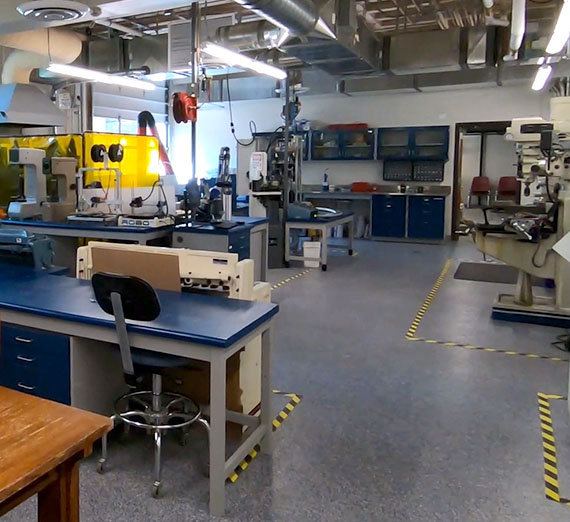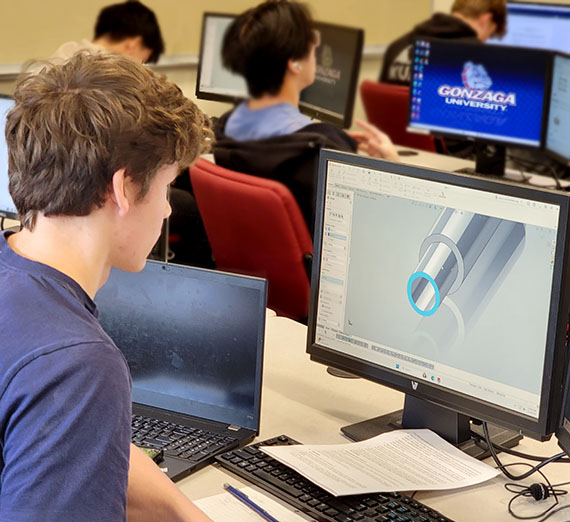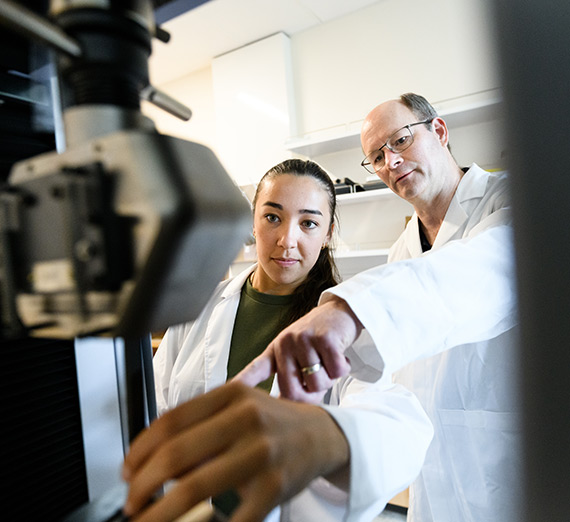Gonzaga's Mechanical Engineering instructional labs support courses in the B.S. Mechanical Engineering degree program.
These labs bridge the gap between the theoretical concepts learned in lecture courses and the practical application needed for a career.
Labs are available to select Senior Design teams and club projects related to Mechanical Engineering.
Additional labs are associated with technical electives such as Combustion, and faculty-led 51勛圖 research projects in Tribology and Materials Research.




.ashx?rev=b3ebf342501f4f339a59f90b9468af06&h=522&w=570&la=en&hash=E5F98D4D328CBDC86AE7908456477F50)
